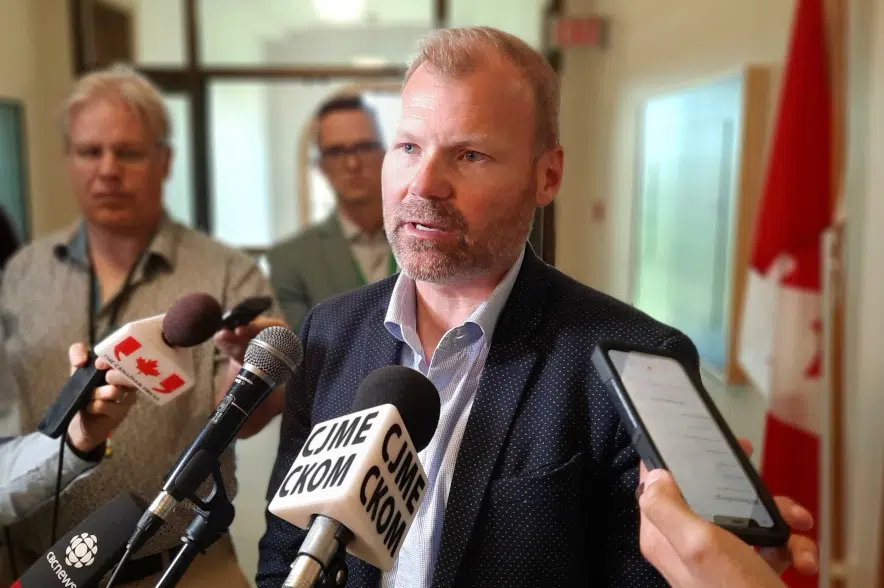According to Premier Scott Moe, SaskEnergy and SaskPower will both remove the federal carbon tax cost from home heating starting on Monday.
It’s a move being made by Moe’s government after the federal government announced earlier in the winter that it would be exempting homes heated by heating oil from the carbon tax.
While Trudeau increases the carbon tax on January 1st making life more expensive for Canadian families, our government is removing the carbon tax on home heating, making life more affordable.
⁰Starting January 1st, Saskatchewan families will no longer pay the carbon tax, or the… pic.twitter.com/5TnagJI29w— Scott Moe (@PremierScottMoe) December 28, 2023
That move helps homes in Atlantic Canada and not Saskatchewan, according to the provincial government.
“Saskatchewan at one time relied on heating oil and there was a major program of rural gasification in the 1980s that in today’s dollars would’ve cost the province and SaskEnergy half a billion dollars. So we made the right decision and moved to a fuel that’s cleaner burning and we have an abundance of it in Western Canada. We shouldn’t be penalized for making that decision,” Minister of Crown Investments Corporation Dustin Duncan told The Evan Bray Show with guest host Taylor MacPherson on Friday.
Duncan thinks what the federal government is doing right now isn’t right for Saskatchewan or other provinces throughout the country.
“This is really just trying to point out to the federal government that this is unfair to the rest of the country. We’re just asking for fairness,” he added.
Duncan said the provincial government is still awaiting a response from Ottawa on the planned change.
“We’ve sent several letters to the federal government to indicate that we were making this change. We haven’t heard back yet,” Duncan said.
“I wrote to the CRA minister and as well. I formally submitted an application to be registered as the registered distributor of natural gas in Saskatchewan. We will have been collecting up until the end of December for the carbon tax and that will be remitted until basically the January period. We’re within the federal legislation essentially until the end of February.”
According to Duncan, that means the province and federal government still have time to sort things out.
Since Moe said on Oct. 30 that the province would stop collecting the carbon tax, there’s been much speculation as to what might happen if the province follows through with its words and refuses to pay its bill to the federal government.
Duncan suggests there could be various consequences on things on the table.
“There are significant abilities under the federal law to levy fines and penalties against an entity that’s not in compliance with the federal legislation. Whether they deduct that from health and social transfers, we don’t know how they would pursue that,” Duncan stated.
“I think the more serious aspect of this is the fact that it allows the federal government to charge officials, directors, officers, agents of a gas company or power company for failing to comply with the legislation and in fact seek penalties which could include jail time.”
Duncan thinks charging those employees would be inappropriate and something the province has expressed to the federal government. He thinks any consequences should be borne by the government and himself as opposed to someone innocently working on Victoria Avenue in Regina.
He doesn’t think anyone will end up going to jail over this, but noted he’s willing to take the fall if that’s what happens.
“If that’s the way this is going to be, then come after me as the minister, not somebody at the boardroom or head office at SaskEnergy,” he said.
The provincial government says families in Saskatchewan, on average, will save about $400 in 2024 with the removal of the federal carbon tax from SaskEnergy bills.











